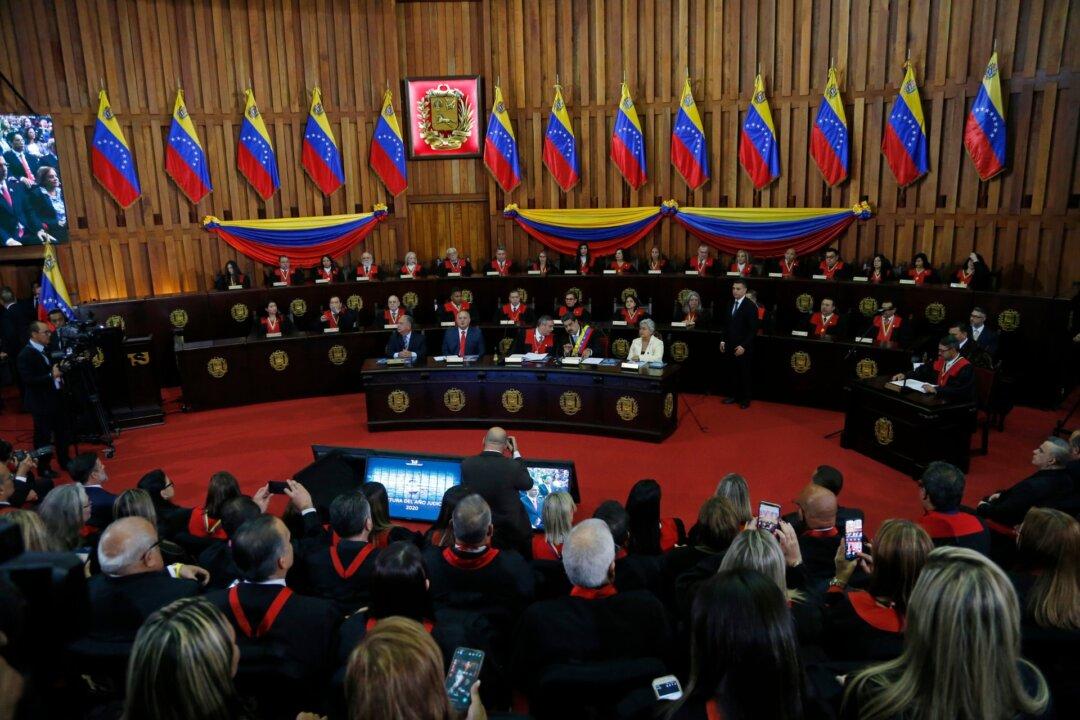CARACAS, Venezuela—Venezuela’s Supreme Court, loyal to President Nicolás Maduro, on June 16 ordered the takeover of two influential political parties opposed to the socialist government ahead of parliamentary elections expected this year.
The court suspended and replaced the board of directors for the Justice First party a day after the same move against the Democratic Action, one of the nation’s oldest and largest parties. It was part of a “necessary restructuring process,” the court said in rulings posted on Facebook.





